A conducting rod of mass 50gm and length 10cm can slide without friction on two long, horizontal rails. A uniform magnetic field of magnitude 5mT exists in the region as shown. A source S is used to maintain a constant current 2A through the rod. If motion of the rod starts from the rest, its speed after 10s from the start of the motion will be
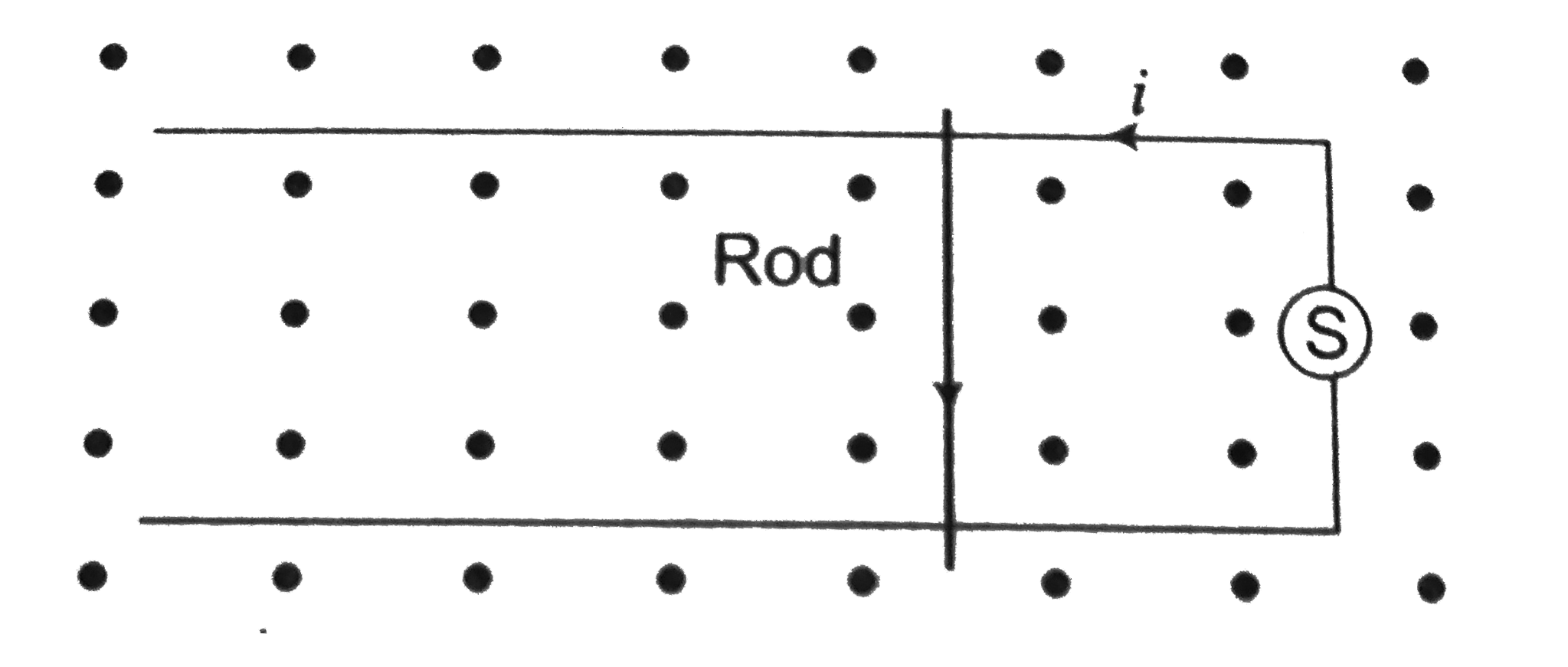
2cm/s
8cm/s
12cm/s
20cm/s
The correct Answer is:D
a=iBlm
and v=(iBlm)t
∴V=20cm/s
Topper's Solved these Questions
- BOOK - FIITJEECHAPTER - TEST PAPERSEXERCISE - PHYSICS747videos
TEST PAPERS
- BOOK - FIITJEECHAPTER - SIMPLE HARMONIC MOTIONEXERCISE - Assignment Problems (Objective) (Level-II)20videos
SIMPLE HARMONIC MOTION
- BOOK - FIITJEECHAPTER - WORK, ENERGY AND POWER EXERCISE - COMPREHENSIONS ( Comprehension-II)5videos
WORK, ENERGY AND POWER
Similar Questions
A conducting rod of mass 200 gm and length 10 cm can slide without friction on two long, horizontal rails. A uniform magnetic field of magnitude 5 m T exists in the region as shown. A source S is used to maintain a constant current 2 A through the rod. If motion of the rod starts from the rest, find its speed (in cm/s) after 10 s from the start of the motion
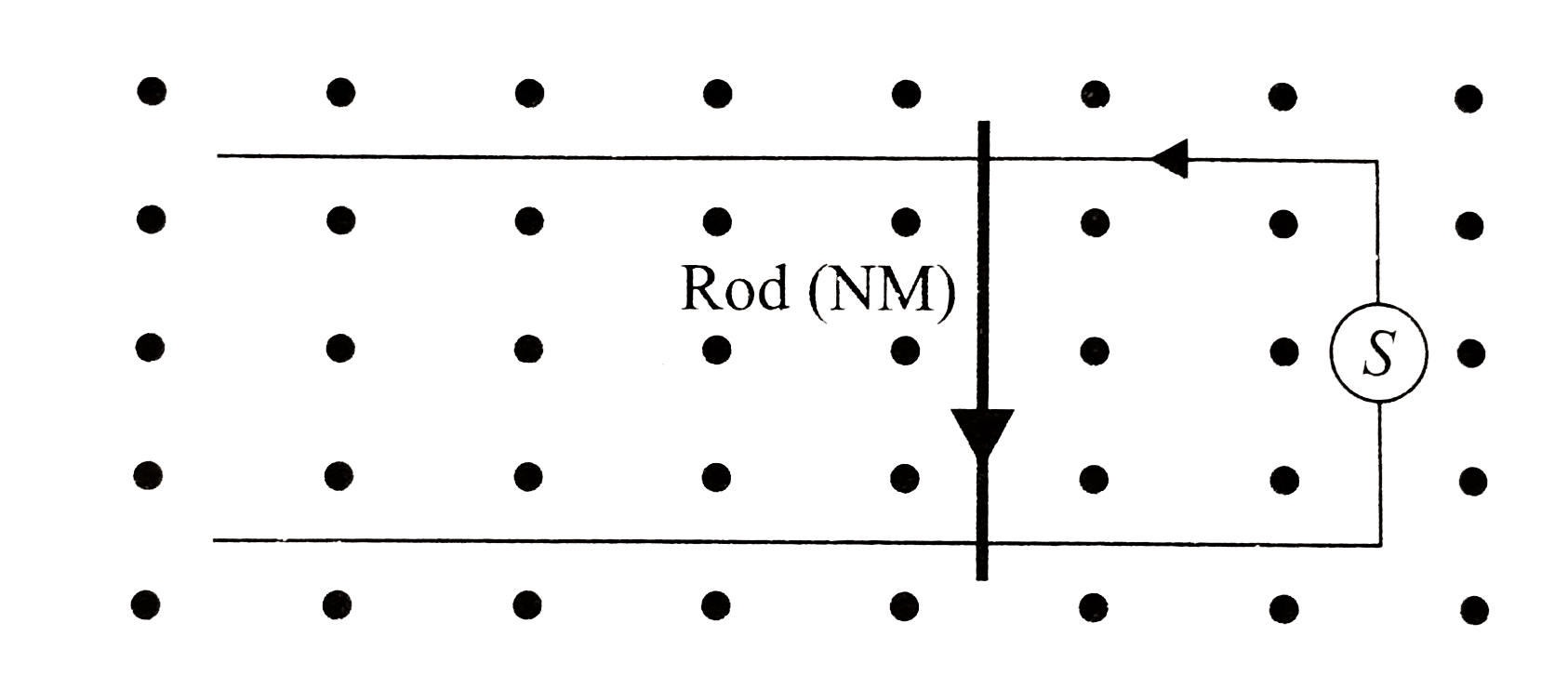 View Solution
View SolutionA 20 cm long conducting rod is set into pure translation with a uniform velocity of 10cm s ^(-1) perpendicuarl to its length. A uniform magnetic field jof magnitude 0.10 T exissts in a direction perpendicuarl to the plane of motion.
View Solution
Knowledge Check
- Question 1 - Select One or More
A conducting wire of length l and mass m can slide without friction on two parallel rails and is connected to capacitance C. The whole system lies in a magnetic field B and a constant force F is applied to the rod. Then
Athe rod moves with constant velocityBthe rod moves with an acceleration of Fm+B2l2CCthere is constant charge on the capacitor.Dcharge on the capacitor increases with time - Question 2 - Select One
A conducting wire of length l and mass m can slide without friction on two parallel rails and is connected to capacitance C. Whole system lies in a magnetic field B and a constant force F is applied to the rod. Then
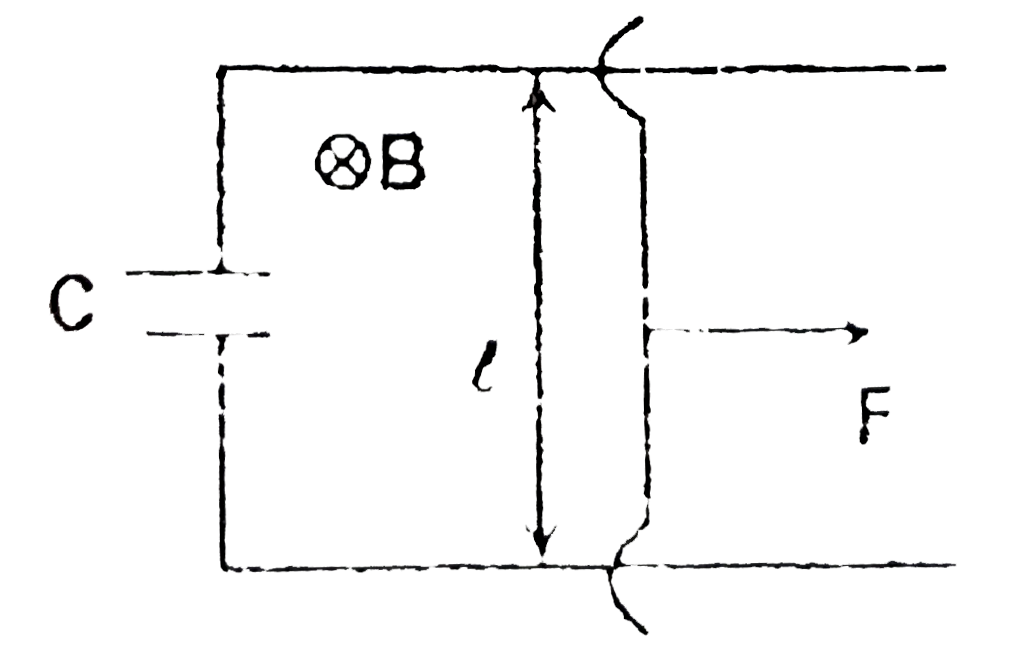 Athe rod moves with constant velocityBthe rod moves with an acceleration of Fm+B2l2cCthere is constant charge on the capacitor.Dcharge on the capacitor increases with time
Athe rod moves with constant velocityBthe rod moves with an acceleration of Fm+B2l2cCthere is constant charge on the capacitor.Dcharge on the capacitor increases with time - Question 3 - Select One or More
A conducting wire of length l and mass m can slide without friction on two parallel rails and is connected to capacitance C. The whole system lies in amagnetic field B and a constant force F is applied to the rod . Then
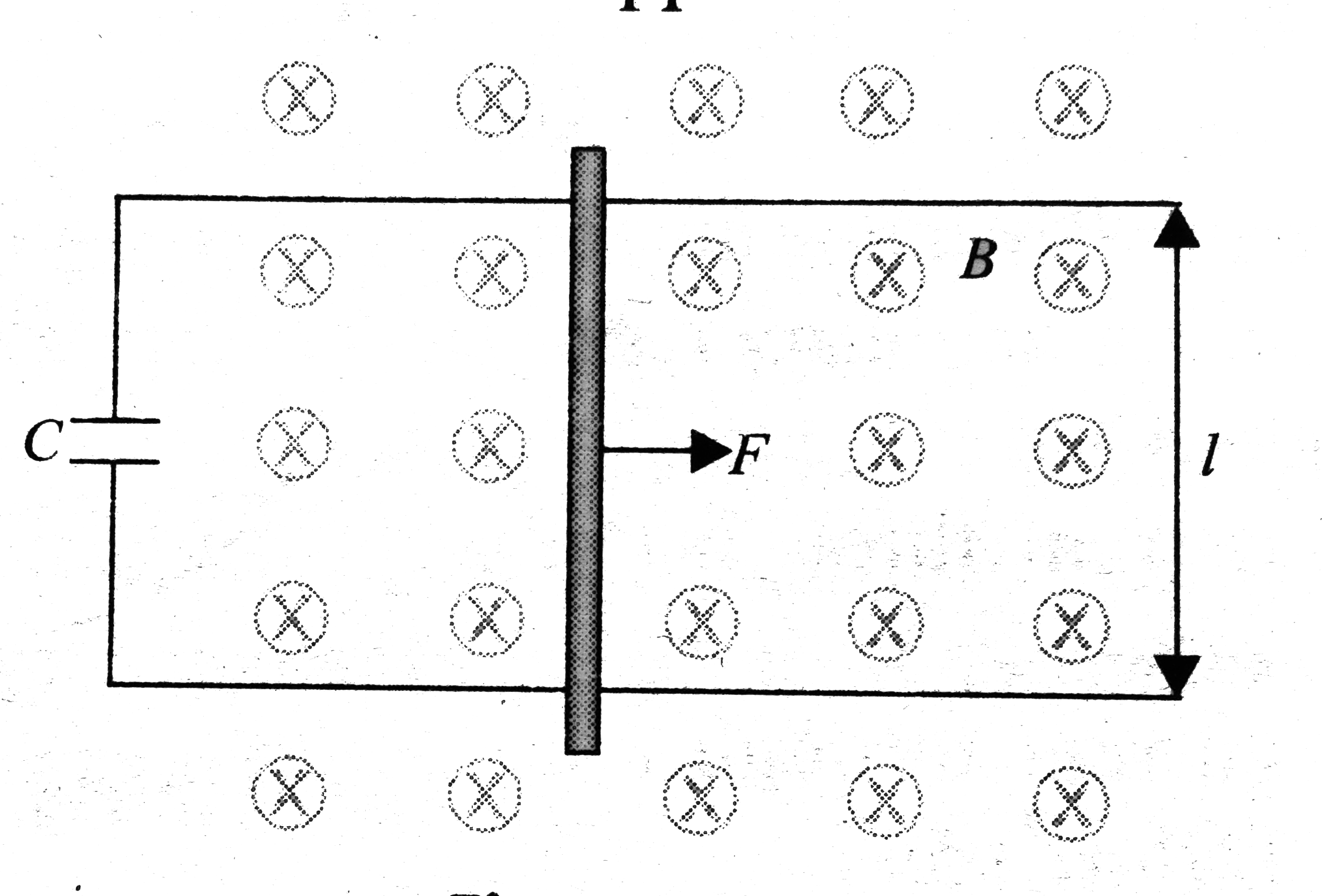 A(a) the rod moves with constant velocity.B(b) the rod moves with an acceleration of (F)/(m+B2l2C).C(c ) there is constant charge on the capacitor.D(d) charge on the capacitor increases with time.
A(a) the rod moves with constant velocity.B(b) the rod moves with an acceleration of (F)/(m+B2l2C).C(c ) there is constant charge on the capacitor.D(d) charge on the capacitor increases with time.
An iron rod of mass 50 g and length 50 cm is suspended by master wires as shown in the figure. Calculate the magnitude and direction of magnetic field to be set in the region such that the tension is the wires is zero. The current in the rod is 4 A.
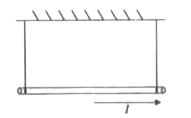 View Solution
View SolutionA coducting rod of mass m=0.3kg and length l=4m can slide without friction on two parallel conducting rails. The conducting rails are connected via an inductancce L=3Mh. This system is placed in a region containing uniform magnetic field B=1T pointing into the plane. if the rod is given an initial velocity v0=2m/s, it oscillates with an amplituude Acm. Find the value of 2A
 View Solution
View SolutionTwo long parallel horizontal rails a, a distance d aprt and each having a risistance λ per unit length are joing at one end by a resistance R. A perfectly conduction rod MN of mass m is free to slide along the rails without friction (see figure). There is a uniform magnetic field of induction B normal to the plane of the paper and directed into the paper. A variable force F is applied to the rod MN such that, as the rod moves a constant current flows through R.
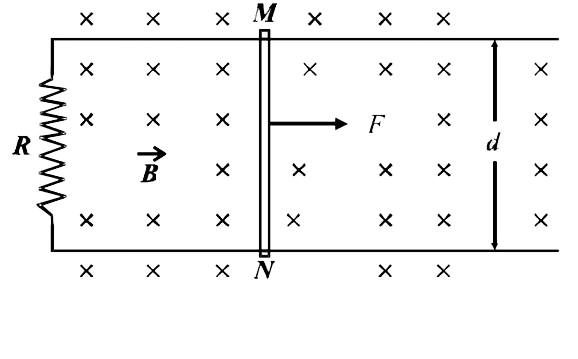
(i) Find the velocity of the rod and the applied force F as function of the distance x of the rod from R.
(ii) What fraction of the work done per second by F is converted into heat?View SolutionA thin conducting rod MN of mass 20gm, length 25cm and resistance 10Ω is held on frictionless long perfectly conducting vertical rails as shown in the figure. There is a uniform magnetic field B0=4T directed perpendicular to the plane of the rod-rail arrangement. The rod is released from rest at time ? = 0 and it moves down along the rails. Assume air drag is negligible. Match each quantity in List-I with an appropriate value from List-II, and choose the correct option.
[Given: The acceleration due to gravity g=10ms−2 and e−1=0.4]
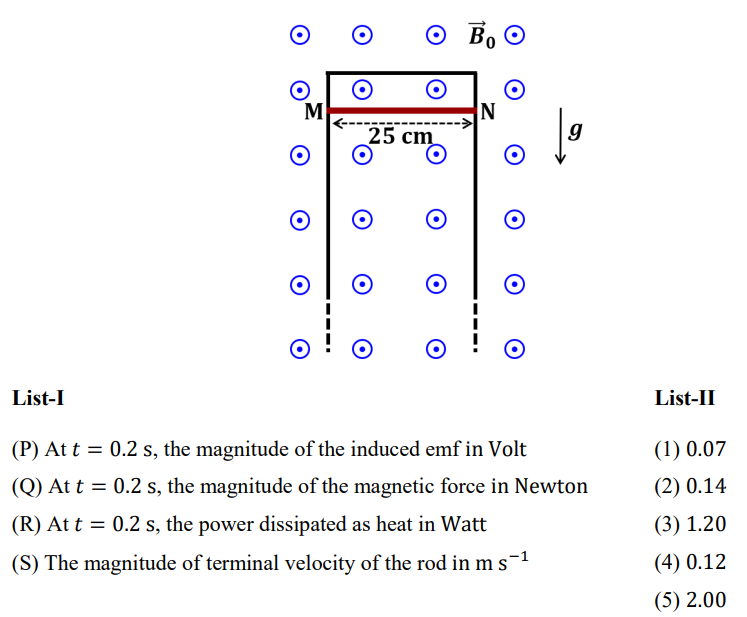 View Solution
View SolutionA conducting rod of 1m length rotating with a frequency of 50 rev/sec. about its one of end inside the uniform magnetic field of 6.28 mT. The valu of induced emf between end of rod is :-
View Solution

